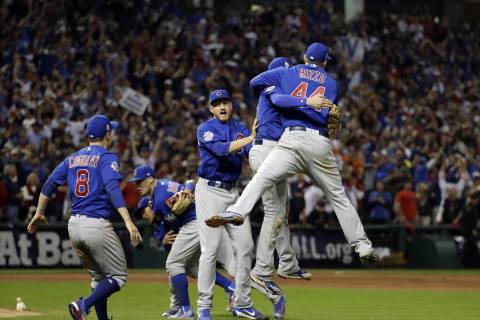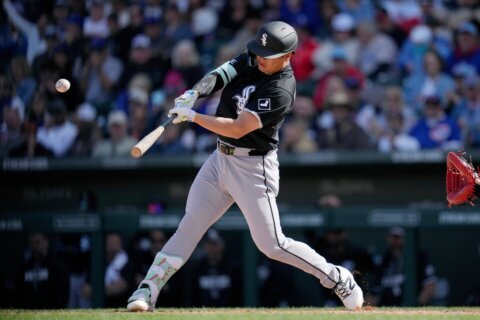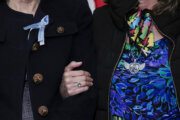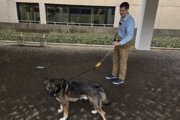WASHINGTON – If the concept of the championship White House visit has become a bit commonplace, Monday’s stood in opposition to the trend, and possibly as one of the last of its kind. With just four days left in his presidency, Barack Obama welcomed not just a baseball team from his hometown, but the one that just shattered the longest professional sports drought in American history.
The images of the proceeding might have been hard for any American to conjure even as recently as a decade ago, much less a half century back. No doubt some, if asked which would come first, a black president or a Cubs World Series title, would have said neither. And yet, they both came together at the same time, just in time before Obama left office. It’s why he extended the rare, offseason invitation, one which the team took him up on, rather than wait for when they are in Washington anyway next baseball season.
“Even I was not crazy enough to suggest that during these eight years we would see the Cubs win the World Series,” Obama joked. “But I did say that there’s never been anything false about hope.”
One man who helped Obama craft that message of hope, chief campaign strategist and former senior advisor David Axelrod, was on hand to celebrate the moment as well, a Cubs blue Bryzzo Souvenir Company T-shirt pulled over his shirt and tie.
“It’s historic in many ways,” Axelrod told WTOP. “From a personal standpoint – as a Chicagoan, as a Cubs fan – to have Barack Obama here, a Chicagoan, welcome them in the final days of his administration, he himself being an improbable winner, there’s so much poetry to it.”
The political overtones hung thick through the revelry, though. Cubs president Theo Epstein spoke on behalf of the club, offering a heartfelt endorsement of Obama’s humanity and an expression of how honored they were to be here during “the last week of your distinguished presidency.” Epstein has been a not-so-private supporter of numerous Democratic candidates, including Hillary Clinton during last year’s presidential campaign.
Obama joked about Epstein’s reputation, forever solidified after quenching the championship droughts of not one, but two of the longest-suffering fan bases, having guided the Boston Red Sox to the 2004 World Series title.
“He takes the reins of an organization wandering in the wilderness and delivers them to the Promised Land,” said Obama. “I talked to him about being DNC Chair, but he wisely decided to stick to baseball.”
Meanwhile, the men who sign Epstein’s paychecks belong to a family tied strongly to Republican Party politics. The patriarch of the Ricketts family (which owns the Cubs) initially supported an anti-Trump PAC, drawing the ire of Donald Trump’s Twitter feed, before eventually switching over to the Republican nominee. As Epstein mentioned during the ceremony Monday, Todd Ricketts has been tapped as Deputy Secretary of Commerce. There were reminders everywhere, amid the celebration, of the uncomfortable transition of power set to take place at the end of the week just outside the White House gates.
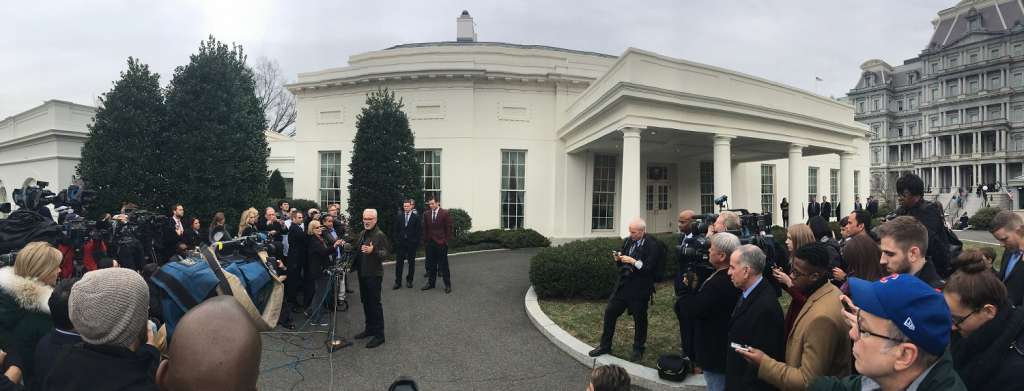
While there surely won’t be a title as historic as the Cubs’ anytime soon, the question of what will become of the presidential tradition of honoring teams is a valid one, which may be tested by the coming NBA Champions. There’s a good chance that will be one of three teams: The Cleveland Cavaliers, Golden State Warriors, or San Antonio Spurs, each of which have publicly stood at odds with the President-elect. LeBron James publicly stumped for Hillary Clinton and avoided Trump properties on the road, while head coaches Steve Kerr and Gregg Popovich have each spoken out candidly against Trump’s election.
The tradition of sports team visiting has existed since at least 1865, when Andrew Johnson invited the Brooklyn Atlantics and Washington Nationals to the White House. The Boston Celtics were the first NBA champs to attend, in 1963; the Pittsburgh Steelers the first Super Bowl champ in 1980. A number of individual athletes have declined to attend – notably Ravens center Matt Birk, who disagreed with Obama’s support of Planned Parenthood — but we have not seen a full-fledged boycott.
As he has throughout the transition, Obama preferred to take the optimistic viewpoint, focusing not on the tensions and divisions all around, but rather the power of sports to bring our society closer and heal us. Because while sports can be a welcome distraction, they can also bind communities in ways that transcend political or other tribal boundaries.
“It is worth remembering – because sometimes people wonder ‘what are you doing spending time on sports when there’s other stuff going on?’ – that throughout our history, sports has had this power to bring us together, even when our country is divided,” he remarked. “Sports has changed attitudes and culture in ways that seem subtle, but that ultimately made us think differently about ourselves and who we are. It is a game and a celebration, but there is a direct line between Jackie Robinson and me standing here.”
The ceremony was also, as Obama mentioned, the last official event at the White House under his presidency. Sure, that could be coincidence, as could the event landing on Martin Luther King, Jr. Day, a holiday whose weight is even heavier with the first African-American president leaving office the same week that his replacement feuds with a civil rights leader who marched with Dr. King. But even if it all just simply worked out for everyone’s schedule to have the visit Monday, the opportunity to make the connection wasn’t lost on Obama.
“When you see this group of folks, of different shades, of different backgrounds, coming from different neighborhoods and communities across the country, then playing as one team, playing the right way, and celebrating each other and being joyous in that — that tells us a little something about what America is, and what America can be,” he said. “So it is entirely appropriate that we celebrate the Cubs today, here in this White House, on Dr. Martin Luther King Jr.’s birthday, because it helps direct us in terms of what this country has been and what it can be in the future.”

